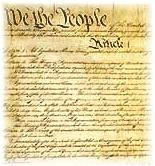I get the Peter Navarro argument that income generated from tariffs today could help generate revenue to benefit tax cuts later, but Americans are suffering from Bidenomics and high prices now. Driving up more prices now for potential tax cuts later is politically dangerous. I also think Navarro is wrong overall on tariffs.
I’ve come to the conclusion that Donald Trump’s belief in tariffs is a faith belief. He believes, by faith, that driving up tariffs will stimulate American domestic manufacturing and production. He believes, by faith, that foreign governments pay the tariffs, not the importing businesses who pass along some or all of the tariff to consumers. And he believes, by faith, that tariffs show American strength to the world. He has surrounded himself with an amen chorus to affirm his by faith belief.
Ironically, the Argentinians have replaced a Peronist with a free marketer and the Americans have traded free marketeers for a Peronist. Just as Argentina’s economy is starting to rev up, the American economy is slowing down.
The problem with belief in tariffs by faith is trying to get everyone else to come around to your belief. Trump’s chief evangelist, Peter Navarro, is not the best spokesman for tariffs, particularly when claiming they will amount to tax cuts later.
Democrats are notorious for believing they can control people’s economic behaviors through offering tax credits. For wealthy Americans, that can be true. But for the middle class and poor, offering a tax credit next year for a behavior change this year is impractical. In the same way, Navarro, who is a Democrat, wants to drive up prices on Americans this week promising to lower income tax rates next year.
Americans are still reeling from Bidenomics and the inflation that came with it. Driving up prices further will hurt.
These are not, contrary to what so many believe, reciprocal tariffs. We will, allegedly, be getting those too, but these other tariffs are in addition to those. The steel and aluminum tariffs are going to impact the housing market, manufacturing, and more. The auto tariffs will drive up demand and, therefore, prices for used cars and affect even domestically produced new vehicles because they have imported parts in them.
Multiple news outlets are reporting the President and his closest advisors believe the Republicans will lose the House of Representatives in 2026. As a result, they want to go big and move fast now. They want, as Obama wanted, to fundamentally transform the United States as quickly as possible.
I like much of Trump’s vision for transformation — a secure border, deportations, a reduction in the federal workforce, a military committed to killing bad guys over social concerns, etc. But if between now and 2026 the President moves fast with tariffs because of his faith in their transforming power, he risks not just losing the House of Representatives, but wiping out Republicans down to the local level in swing states who are committed to his vision.
A resurgent Democratic Party, resurgent because of Trump’s excesses and not their own reform, will not have had time to realize the need to moderate their worst impulses.
Americans cannot afford more economic pain. And Americans will put up with a lot culturally so long as they are comfortable economically.
Ditching tariffs, deregulating, and cutting taxes will more readily stimulate the economy for all Americans, giving the President more room and license to transform the nation culturally. He should pursue that route.
The pain from tariffs today for the promise of possible future manufacturing and income tax alterations is a burden on the public that is only just starting to catch up after Joe Biden.
Tariffs today for possibilities, not realities, tomorrow is going to hurt the President’s legacy and Republicans generally with voters. Americans handed the GOP a sweeping victory in 2024. It is unfortunate that President Trump has embraced Democrat economic policies from the 1970’s as the way to the future.


